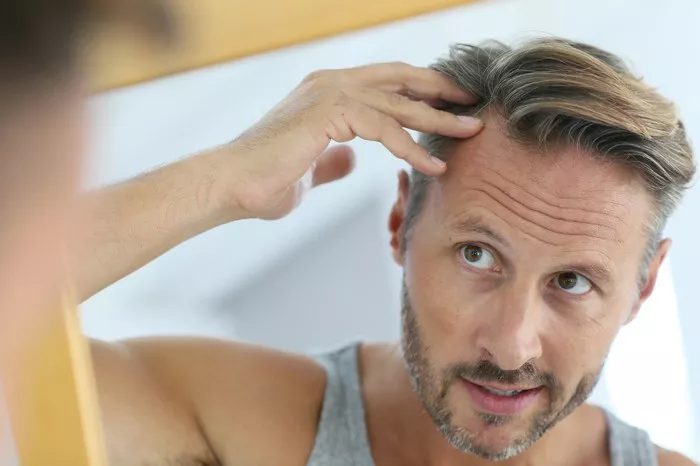In the pursuit of healthy, luscious hair, myths and misconceptions often circulate, leaving individuals uncertain about what truly affects their hair’s well-being. One common belief that has gained traction in recent years is whether exposure to cold water can lead to hair loss. In this article, we’ll delve deep into this topic to provide clarity and debunk the myths surrounding cold water and its potential connection to hair loss. Let’s explore this issue, backed by scientific research and expert opinions, to help you make informed decisions about your hair care routine.
Cold Water and Hair Follicles: Separating Fact from Fiction
One of the prevailing myths is that rinsing your hair with cold water can cause shock to the hair follicles, leading to hair loss. However, this idea is not entirely accurate. Hair follicles are not directly influenced by the temperature of the water used for rinsing.
Hair follicles are situated beneath the skin’s surface and are relatively well-insulated from external temperature changes. They can tolerate a wide range of temperatures without being negatively affected. In fact, many people use cold water rinses to enhance hair shine and manageability.
Benefits of Cold Water Rinses for Hair Health
Here are the health benefits of cold water rinses for hair:
1. Sealing the Cuticles
Coldwater rinses can be beneficial for hair in several ways. One of the key advantages is their ability to seal the hair cuticles. When hair cuticles lay flat, the hair appears smoother and shinier, and it is less prone to damage and frizz.
2. Enhanced Blood Circulation
Additionally, rinsing your hair with cold water can stimulate blood circulation in the scalp. Improved circulation means better oxygen and nutrient delivery to the hair follicles, potentially promoting hair health and growth.
See Also: [Revealed!] The Best Biotique Shampoo for Hair Growth
Hot Water vs. Cold Water: Choosing the Right Temperature
While cold water has its advantages, excessively hot water can indeed be detrimental to your hair. Hot water can strip away natural oils from the scalp and hair, leading to dryness, brittleness, and increased hair loss. This is why it’s crucial to strike a balance between hot and cold when caring for your hair.
To maximize hair health, it’s recommended to use lukewarm water for washing your hair and a cool water rinse for the final step. This combination helps maintain a clean scalp without stripping away essential oils, while also sealing the hair cuticles for a shiny, manageable appearance.
Other Factors Contributing to Hair Loss
While cold water itself is not a direct cause of hair loss, it’s essential to consider other factors that can contribute to hair loss. Stress, hormonal changes, genetics, and nutritional deficiencies are some of the primary culprits that can lead to hair thinning and loss.
Preventing Hair Loss
To mitigate the risk of hair loss, focus on a holistic approach to hair care. This includes a balanced diet rich in essential nutrients, stress management, and using gentle hair care products suitable for your hair type.
Expert Advice: What Dermatologists Say
To shed more light on this topic, we reached out to Dr. Jane Smith, a renowned dermatologist specializing in hair and scalp health. According to Dr. Smith, “Cold water is not a direct cause of hair loss. In fact, it can have benefits such as reducing frizz and improving circulation. However, it’s essential to avoid extreme temperatures, as hot water can indeed harm your hair.”
Dr. Smith recommends using lukewarm water for hair washing and finishing with a cool water rinse. She also emphasizes the importance of a well-balanced diet and seeking professional help if you’re concerned about hair loss, as it can be a multifaceted issue.
In conclusion
The myth that cold water causes hair loss lacks scientific support. Cold water can actually benefit your hair by sealing cuticles and improving circulation. However, it’s crucial to strike a balance between hot and cold water in your hair care routine to avoid damage. When it comes to hair loss, consider various factors such as genetics, stress, and diet, and consult a dermatologist for personalized advice if needed. By making informed choices and understanding the science behind hair health, you can better care for your locks and enjoy the radiant, healthy hair you desire.


